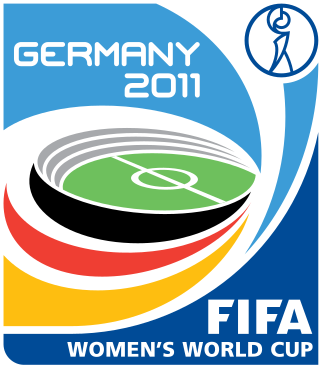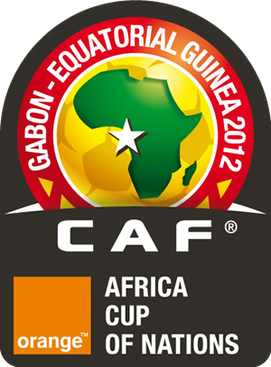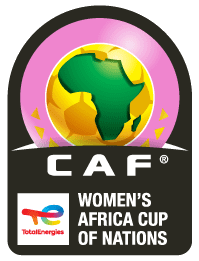
The Central African Republic national football team, nicknamed Les Fauves, is the national team of the Central African Republic and is controlled by the Central African Football Federation. They are a member of CAF. Despite being traditionally one of the weakest teams in Africa and the world, they recently achieved success. They won the 2009 CEMAC Cup by beating Gabon in the semi-finals and Equatorial Guinea in the final 3–0. Their FIFA ranking rose from 202nd in August 2010 to 89th by July 2011. On 10 October 2010, they earned a shock 2012 Africa Cup of Nations qualifier win at home against Algeria 2–0, which put them top of their qualification group. The team won its first FIFA World Cup qualifier on 2 June 2012 after beating Botswana 2–0 at home.

The 2011 FIFA Women's World Cup was the sixth FIFA Women's World Cup competition, the world championship for women's national football teams. It was held from 26 June to 17 July 2011 in Germany, which won the right to host the event in October 2007. Japan won the final against the United States on a penalty shoot-out following a 2–2 draw after extra time and became the first Asian team to win a senior FIFA World Cup.
The CONCACAF W Championship is an association football competition organized by the Confederation of North, Central American and Caribbean Association Football (CONCACAF) that often serves as the qualifying competition to the Women's World Cup, and recently the Olympics. In years when the tournament has been held outside the World Cup qualifying cycle, non-CONCACAF members have been invited. CONCACAF is the governing body for football for North America, Central America and the Caribbean. The most successful country has been the United States, winning their ninth title in 2022.

The 2012 Africa Cup of Nations, also known as the Orange Africa Cup of Nations for sponsorship reasons, was the 28th edition of the Africa Cup of Nations, the football championship of Africa organized by the Confederation of African Football (CAF).

The Equatorial Guinea women's national football team, nicknamed the Nzalang Femenino, has represented Equatorial Guinea in senior international women's football competition since 2000. It is controlled by the Equatoguinean Football Federation, the governing body for football in Equatorial Guinea.

Jade Boho Sayo, known as Jade Boho or just Jade, is a former professional footballer who played as a forward. She has spent most of her club career in Spain, but also competed in England and Switzerland. Born and raised in Spain to a Spanish father and an Equatorial Guinean mother, she has represented Spain and Equatorial Guinea at under-19 and senior levels, respectively.

The Guatemala women's national football team is controlled by the Federación Nacional de Fútbol de Guatemala. They are one of the top women's national football teams in the Central American region along with Costa Rica, having won the 1999 UNCAF championship.
The CAF Women's Pre-Olympic Tournament determined the two participants representing the African continent in Football at the 2012 Summer Olympics. The competition was played as knockout tournament of four rounds.

The Angola women's national football team represents Angola in international women's football and it is controlled by the Angolan Football Federation. Their best place on the FIFA Rankings was the 82nd place, in December 2003. The only tournaments that they qualified were the 1995 and 2002 African Women's Championships, and their best finish was as Semi-Finalists in the 1995 tournament. Angola has, in contrast to many other African countries, has never suffered a heavy defeat. They have seldom lost by more than two goals.
The Congo women's national football team represents the Congo in international football.
The 2012 African Women's Championship was a football competition, which was organized by the Confederation of African Football (CAF). The final tournament was held in from 28 October to 11 November in Equatorial Guinea.

The association football tournament at the 2016 Summer Olympics was held from 3 to 20 August in Brazil.

The qualification for the 2015 FIFA Women's World Cup determined which 23 teams joined Canada, the hosts of the 2015 tournament, to play for the Women's World Cup.
Twelve teams competed in the women's football tournament at the 2016 Summer Olympics. In addition to host nation Brazil, 11 women's national teams qualified from six separate continental confederations.
The 2015 CAF Women's Olympic Qualifying Tournament was the fourth edition of the CAF Women's Olympic Qualifying Tournament, the quadrennial international football competition organised by the Confederation of African Football (CAF) to determine which women's national teams from Africa qualify for the Olympic football tournament.

The Women's Africa Cup of Nations (WAFCON), known for sponsorship purposes as the TotalEnergies Women's Africa Cup of Nations and formerly the African Women's Championship, is a biennial international women's football tournament organized by the Confederation of African Football (CAF) since 1991 as the qualification for the FIFA Women's World Cup for African nations. Initially started as a home-and-away qualification competition, it got rechristened as a biennial tournament in 1998 and took on its current name as of the 2016 edition.
The 2019 FIFA Women's World Cup qualification process decided all 24 teams which played in the 2019 FIFA Women's World Cup, with the hosts France qualifying automatically. It is the eighth FIFA Women's World Cup, the quadrennial international women's football world championship tournament. The tournament is the third to be hosted in Europe, after the 1995 FIFA Women's World Cup in Sweden and the 2011 FIFA Women's World Cup in Germany.
Twelve teams competed in the 2020 women's Olympic football tournament.
A total of 16 teams are scheduled to compete in the men's football tournament at the 2024 Summer Olympics. In addition to the host nation France, 15 men's national under-23 teams qualified or will qualify from the tournaments of the six continental confederations.
Twelve teams are scheduled to compete in the women's football tournament at the 2024 Summer Olympics. In addition to France, the host nation, 11 women's national teams will qualify from six separate continental confederations.











